2024 World Conference on Traditional Medicine: Xiyuan Hospital undertook the Parallel session "Cardiovascular and Cerebrovascular Diseases"
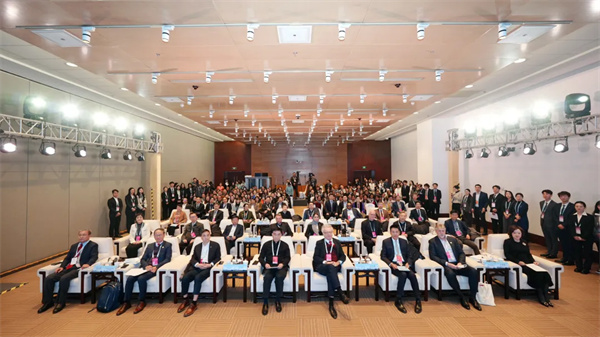
On the morning of December 4th, the 2024 World Conference on Traditional Medicine was successfully convened. The Xiyuan Hospital of the China Academy of Chinese Medical Sciences (CACMS) assumed responsibility for Topic One: Cardiovascular and Cerebrovascular Diseases, within Part II of the event, namely the Forum on Integrated Health Services. A distinguished assembly of 18 domestic and international academicians and experts convened to focus intently on cardiovascular and cerebrovascular diseases. They engaged in profound deliberations regarding the harmonious integration of modern and traditional medical practices in order to effectively confront and surmount prevailing challenges. The symposium featured six keynote presentations and one interactive dialogue session. Esteemed participants included four domestic and international academicians, three Qihuang Scholars, and over 150 distinguished guests from both national and international spheres.
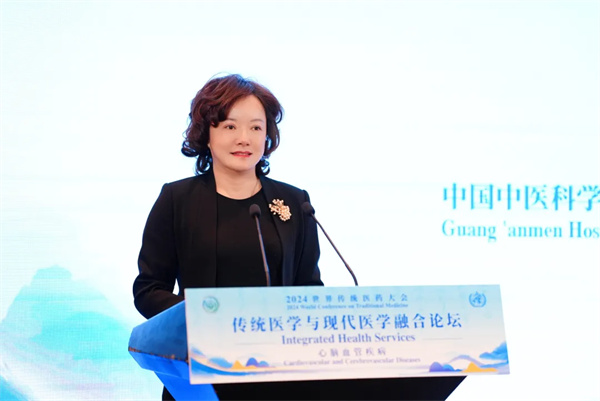
At the esteemed event, Ms. Li Qiuyan, who holds the august positions of President of Xiyuan Hospital, delivered an eloquent and insightful speech.
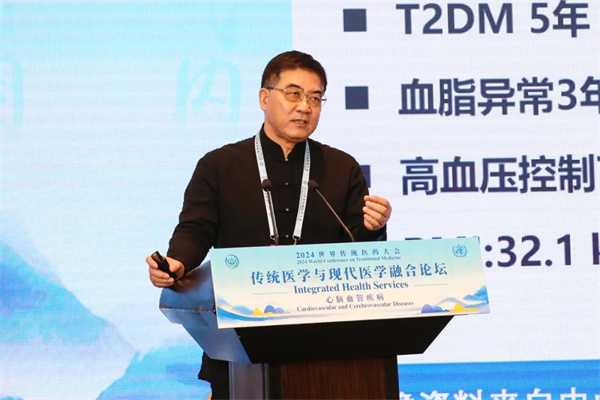
Academician Ge Junbo of CAS(Chinese Academy of Sciences delivered a lecture titled "Pan-vascular Diseases: Insights and Future Strategies". Pan-vascular medicine, as an emerging academic discipline, transcends the traditional limitations of studying vascular lesions in individual organs, emphasizing the holistic nature of the entire vascular system. In his lecture, Academician Ge delved into the connotations of this field, elucidating the pivotal significance of interdisciplinary convergence in the diagnosis and treatment of pan-vascular diseases. By integrating medical knowledge and techniques from multiple domains such as cardiology, cerebrovascular medicine, and peripheral vascular medicine, a comprehensive vascular health management system is constructed.
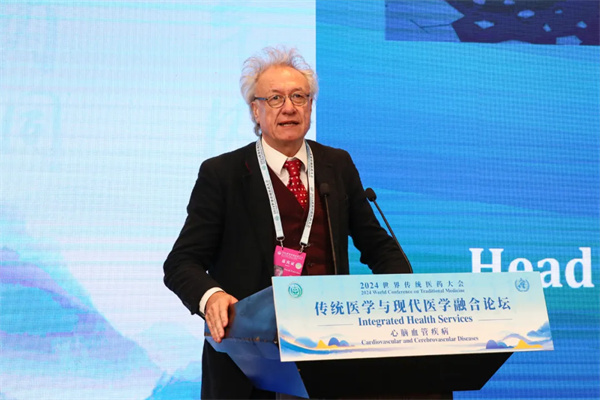
Professor David Paterson, a distinguished faculty member at the University of Oxford and an Honorary Fellow of the Royal Society of New Zealand, presented a lecture entitled "Innovative Translation of European Traditional Medicine for Cardiovascular Disease Treatment". The University of Oxford stands at the vanguard of the convergence between European traditional medicine and modern technology, actively integrating traditional therapeutic wisdom with contemporary scientific research methodologies to forge novel pathways in the treatment of cardiovascular diseases. Academician David Paterson shared a series of innovative case studies, showcasing the latest advancements in the integration of Traditional Chinese Medicine, Western Medicine, and Biomedical Science.
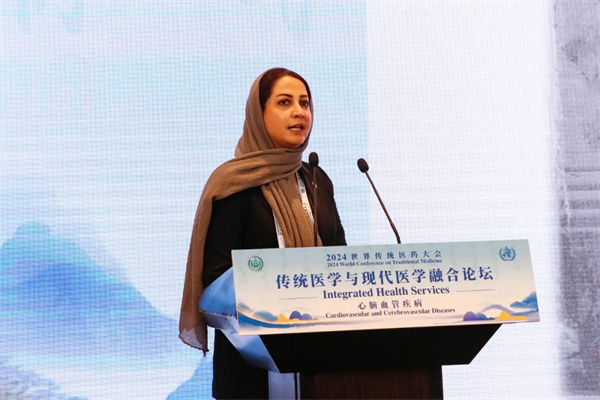
Professor Roja Rahimi, Dean of the Persian Medical College at Tehran University of Medical Sciences, delivered a lecture titled "Study on Persian Traditional Medicine and Cardiovascular Disease Prevention and Treatment". Traditional Persian Medicine (TPM), an ancient holistic medical system originating from Persia, focuses on enhancing health levels as well as diagnosing, improving, and treating physical and mental illnesses. Professor Roja Rahimi's research posits that Persian Traditional Medicine holds significant efficacy in the prevention and treatment of chronic diseases, particularly cardiovascular diseases.
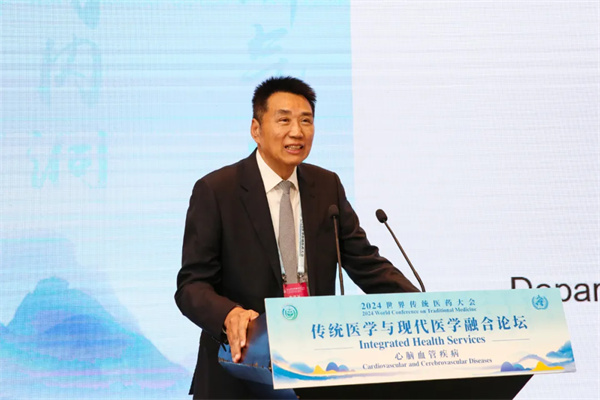
Academician Tian Jinzhou of CAE(the Chinese Academy of Engineering) delivered a lecture titled "Traditional Chinese Medicine Treatment for Alzheimer's Disease". Alzheimer's Disease (AD) has emerged as a significant challenge in an aging society. Although advancements have been made in pharmaceutical research, both symptomatic treatments and disease-modifying therapies for AD remain limited in their efficacy to slow the progression of the disease. Academician Tian Jinzhou proposed the "AD Syndrome Cascade Hypothesis", viewing AD from the perspective of Traditional Chinese Medicine as an evolution of syndromes primarily dominated by kidney deficiency. Based on this hypothesis, he designed a sequential therapy approach, which involves staged treatments such as kidney tonification, phlegm resolution, and fire purging, tailored to different phases of the disease.
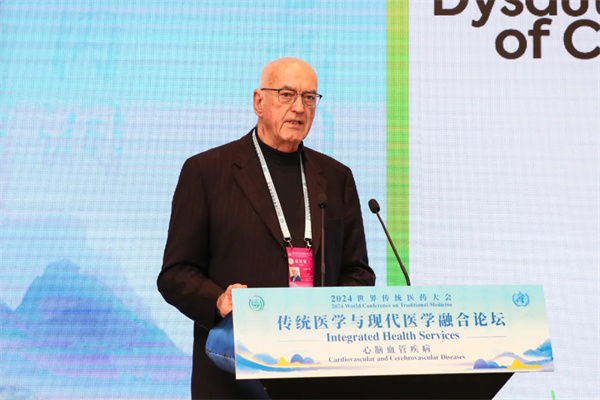
Professor John W. Downes, vice president of the University of Life, USA, delivered a lecture titled "Integration of Traditional Medicine with Modern Sports Medicine: Study on Chiropractic Manipulation in Improving Neurological Function and Preventing and Treating Cardiovascular and Cerebrovascular Diseases". Chiropractic, a healthcare discipline, focuses on modulating the central nervous system through spinal manipulative techniques to alleviate symptoms. Professor John W. Downes presented research findings on the application of chiropractic manipulation in enhancing neurological function and in the prevention and treatment of cardiovascular and cerebrovascular diseases. Through collaboration between traditional practitioners and chiropractors, an interdisciplinary approach is employed to elevate the health status of individuals.
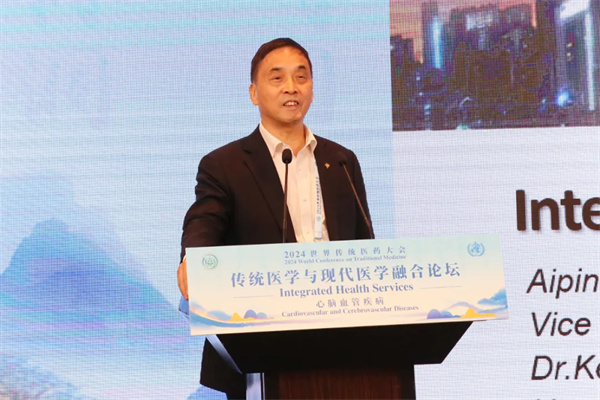
Professor Aiping Lyu, Foreign Academician of the European Academy of Sciences and Vice President of Hong Kong Baptist University, delivered a lecture titled "Innovative Diagnosis and Treatment Paradigm by Integrating Traditional Chinese Medicine (TCM) Syndrome with Precision Medicine—A Case Study of Precision Syndrome Medicine in Cardiovascular Diseases". Professor Lyu posits that the significant advancements in biotechnology will accelerate the integration of Traditional Chinese Medicine and Western Medicine. A high-calibre integrated model has been established in China, making substantial contributions to the healthcare system. Professor Lyu suggests that the future integration of TCM and Western Medicine will emerge as a new medical paradigm, and in his report, he delved into the diagnostic, therapeutic, and research mechanisms of this novel medical approach.
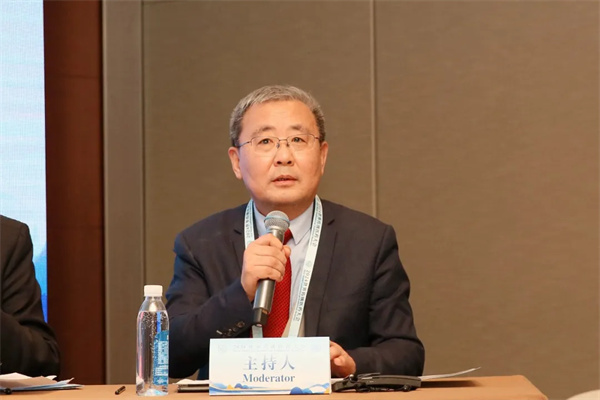
YunLing Zhang
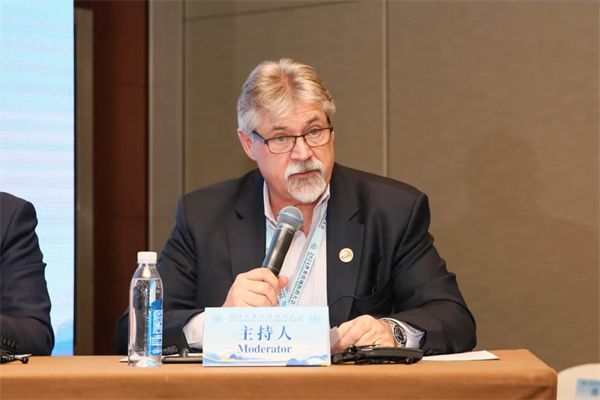
Rob Scott
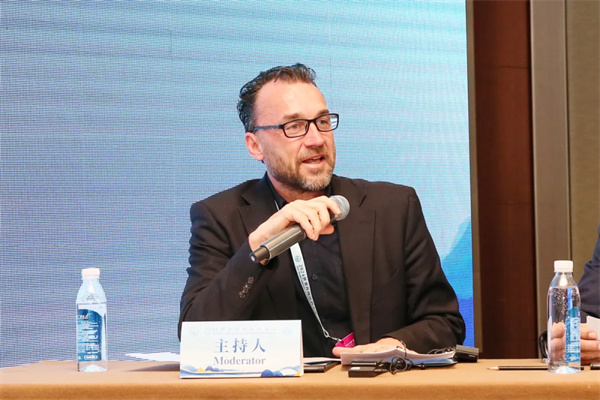
Georg Seifert
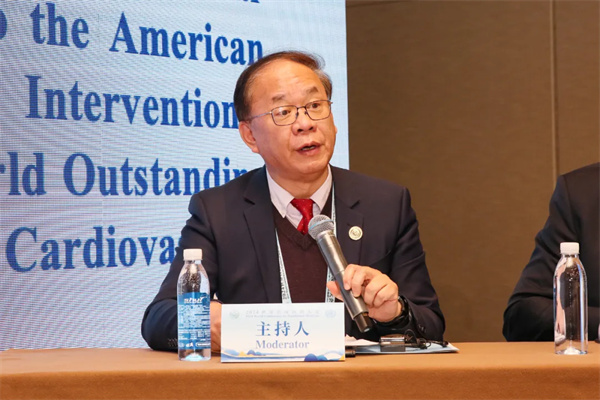
Dennis Chang
Professor Dennis Chang, Director of the National Institute of Complementary Medicine at Western Sydney University, Dr. Rob Scott, President of the University of Life, Professor Georg Seifert, Chairman of the European Society of Integrative Medicine (ESIM), and Chief Researcher Zhang Yunling of the China Academy of Chinese Medical Sciences each presided over the plenary sessions as moderators.
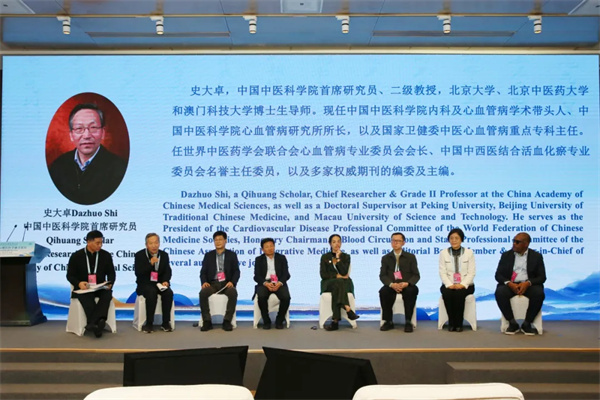
Exchange and dialogue "Strategy of Integration of Modern Medicine and Traditional Medicine: Precise Timing and Critical Path"
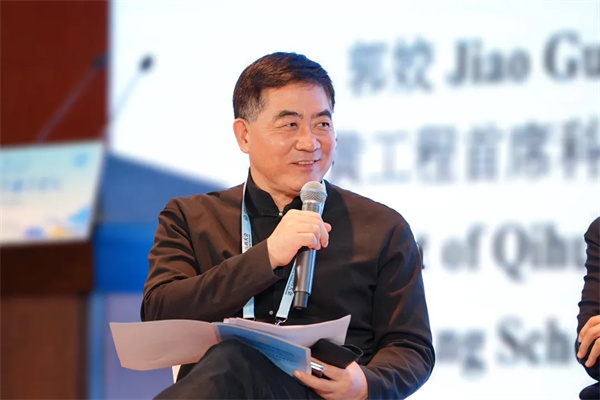
Junbo Ge, Academician of Chinese Academy of Sciences, Zhongshan Hospital Fudan University
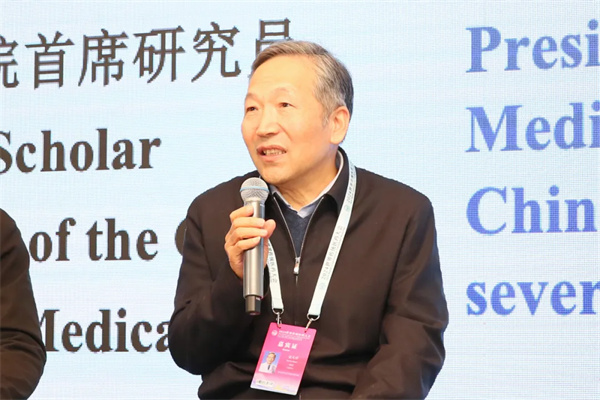
Dazhuo Shi, Director of the Institute of Cardiovascular Disease, Chinese Academy of Traditional Chinese Medicine
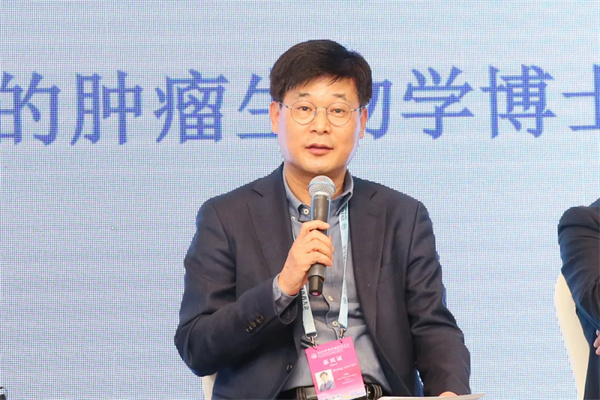
Seong-Gyu KO, Director of Institute of Eastern and Western Medicine of KyungHee University
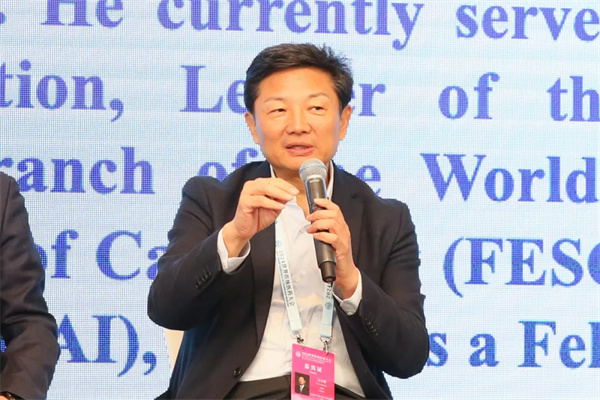
Yongjian Wu, Director of Center for Cardiovascular Diseases, Fuwai Hospital Chinese Academy of Medical Sciences
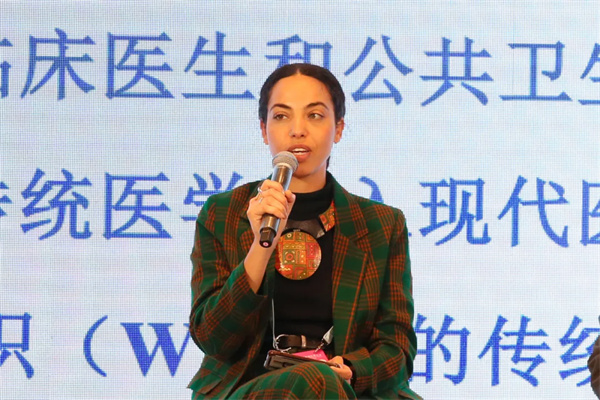
Hiba Boujnah, Head of International Cooperation and Partnerships of CCCTIM
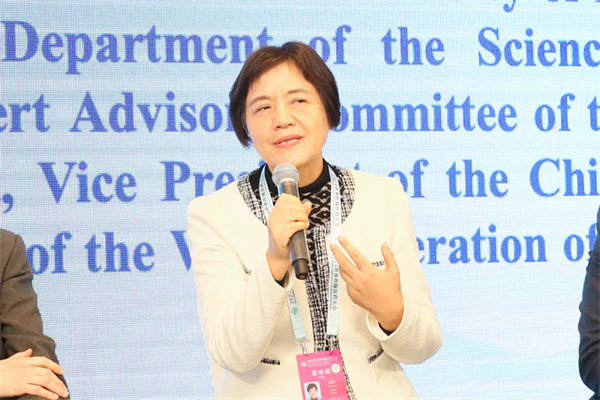
Jiao Guo, Chief Scientist of the Qihuang Project, Qihuang Scholar, Director of the Key Laboratory of Glucose and Lipid Metabolism Diseases of the Ministry of Education
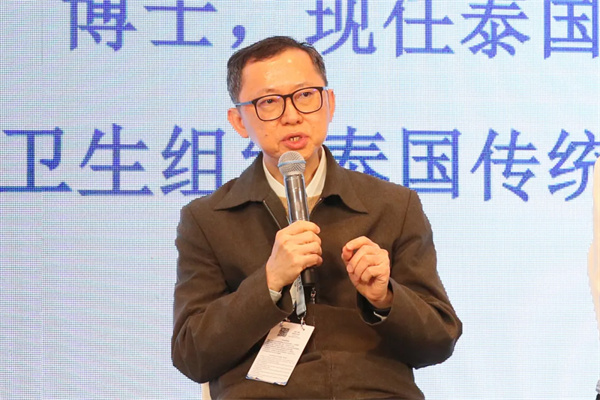
Pravit Akarasereenont, Director of Traditional Medicine Application Center of Mahidol University
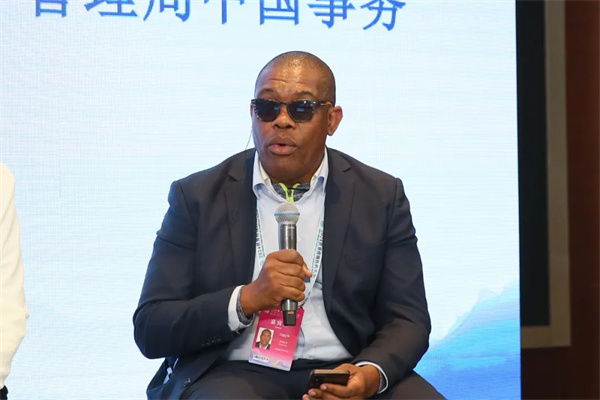
Liggyle Vumilia from Tanzania, an official in charge of traditional medicine at the Tanzanian Ministry of Health.
Subsequently, under the chairmanship of Academician Ge Junbo, eight distinguished experts from both domestic and international spheres engaged in an enlightening dialogue centered on the theme "Strategy of Integration of Modern Medicine and Traditional Medicine: Precise Timing and Critical Path".
The 2024 World Conference on Traditional Medicine was jointly organized by the National Health Commission, the National Administration of Traditional Chinese Medicine, and the People's Government of Beijing Municipality, with the World Health Organization as a co-organizer. The conference, themed "Diversity, Heritage, and Innovation: Enabling Traditional Medicine to Benefit the World," featured a governmental forum and nine parallel sessions. Among these, the "Forum on the Integration of Traditional and Modern Medicine" focused on major diseases threatening human health, such as cardiovascular and cerebrovascular diseases, tumors, metabolic disorders, and infectious diseases. It invited experts from the fields of traditional and modern medicine worldwide to engage in discussions. The aim was to showcase the progress and achievements in the integration of traditional and modern medicine across the globe and to promote mutual exchange and innovative development among various traditional and modern medical practices. Xiyuan Hospital, leveraging its long-standing accumulation and exemplary role in the field of integrated traditional Chinese and Western medicine, as well as the prevention and treatment of cardiovascular and cerebrovascular diseases using traditional Chinese medicine, undertook the organization of the specialized forum on cardiovascular and cerebrovascular diseases.
Source: International Exchange & Cooperation Office, Xiyuan Hospital
Chinese Editor: Jia Guanchun
English Editor: Zhang Fangteng


